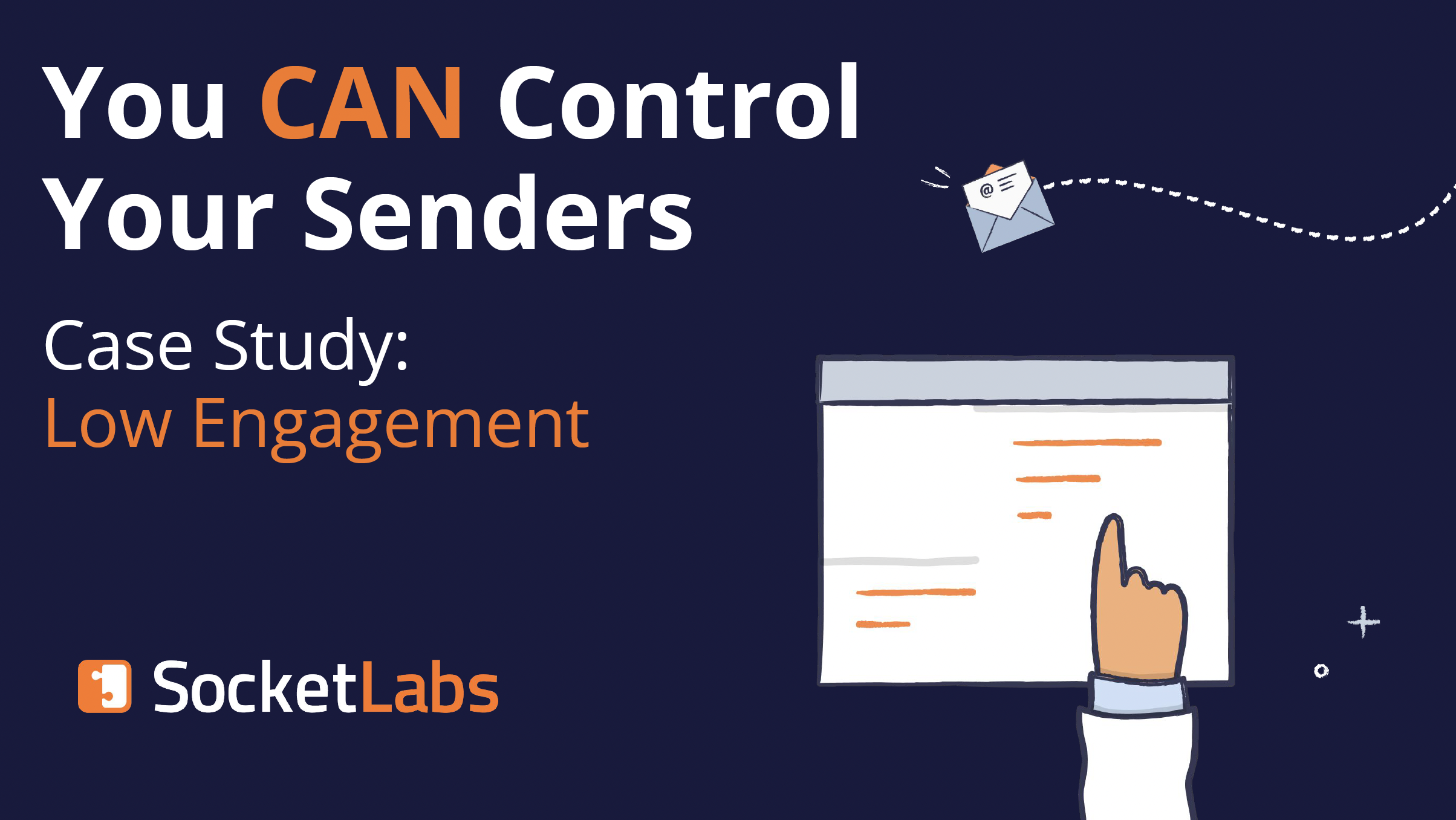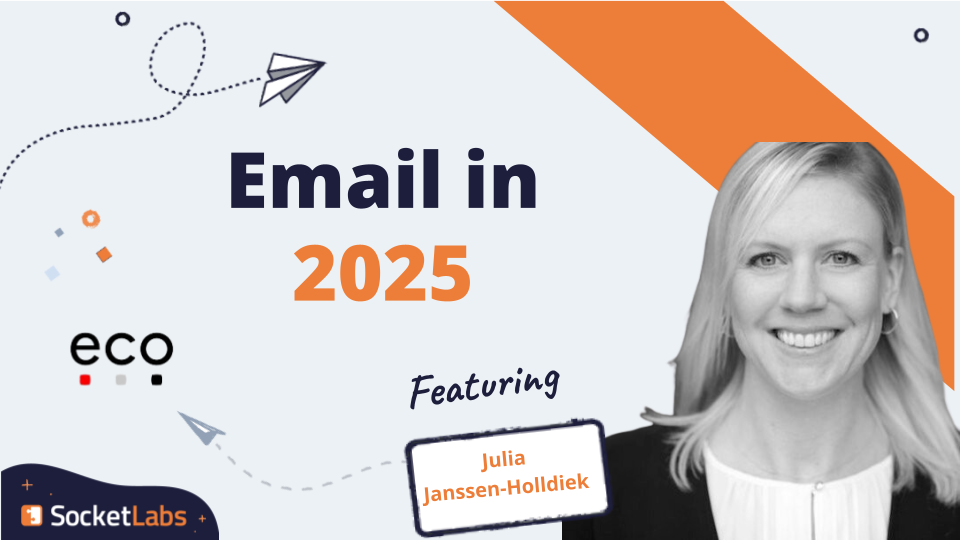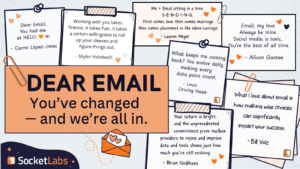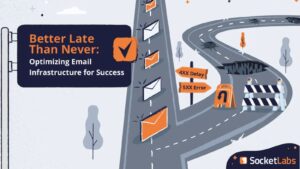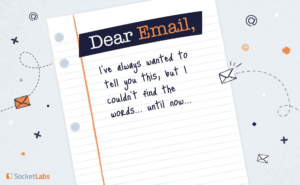Please welcome Julia Janssen-Holldiek!
Julia Janssen-Holldiek studied Business Administration in Cologne and Buenos Aires, and has a professional career as a Sales and Marketing expert at DELL and Director CSA at eco.
Julia understands and values the strategy behind good email marketing. It’s not about data but instead, about relationships. We’re seeing this as a common thread through our expert opinions and it’s clear Julia has it right. Should email be about how many addresses you accumulate at all costs for more chances of conversions or is it about true customer relationships built via email? Her thoughts on email in 2025 are below.
How do you see email fitting into the marketing mix in 2025?
Email is and will be king in the marketing mix whenever we’re talking about a direct conversion. The reason is simple: Because it works. And, this is why: It works as a tool for relationship management as it is (or definitely should be!) permission-based and offers lots of possibilities for individualization. Who doesn’t want to buy from a company they have a positive relationship with?
Let’s face the limits of email marketing as well: It is certainly not the most effective channel to create broad general awareness for a brand-new product of a company one has never seen before. This may be better achieved by other channels, e.g. out-of-home advertising. But once their attention is caught, imagine your potential customer visiting your website – and not being able to sign up for a newsletter.
The newsletter subscription option is expected by customers in order to fulfill their intent to create a relationship with the company and eventually convert their interest into one or several purchases depending on how good your email marketing is. The perfect marketing mix depends on the company and its existing processes, the target group, the product or service and its stage in the lifecycle, etc.
There can be no general answer as to where exactly email fits in as it always depends on different factors. One success factor, certainly, is the ability of companies to create return paths in order to gain customer information and create more individual marketing messages.
What about email do you see as a nice-to-have for now, but feel will be considered table stakes by 2025?
There is certainly much happening around AI at the moment and there will be a lot more by 2025.
I think customers will expect more and more hyper-personalized experiences including personalized content, sending volumes, speech, etc. If this is handled well by companies, customers will be willing to feed provided return paths with more information, allowing the creation of even more personalized experiences. There will probably be even more tools available for video, picture and text generation as well as translations, which gives you access to new markets.
Mailbox providers act as bouncers for their end users and will follow their preferences by filtering behaviors as well. As some companies will certainly go that path in email marketing, it will be hard for competitors to survive who miss that train, resulting in a lack of customer experience and perhaps even deliverability issues. The more individual the message, the lower the churn rate. The less individual the message, the higher the churn rate, the higher the need to grow your reach again, the less interest for companies to respect the willingness to unsubscribe and the more open they are to unprofessional lead generation activities. This is a vicious circle.
What do you hope or wish to see change within email by 2025?
I wish to see a change of mindset within companies when it comes to marketing dashboards. Unfortunately, marketing managers are often driven by short-term goals with outdated KPIs leading to actions which are not in line with the long-term goals and success of a company. Email is often perceived as the free tool where you just have to find the right ESP in order to fulfill all your needs and responsibilities at the lowest cost possible.
A lack of email strategy and ability to work with customer data is often compensated by purchasing data and trying to hide the unsubscribe button from an email in the last corner in order to switch that marketing dashboard green in the last minute. Future reputation problems are then not taken into account, of course. This will become the problem of the next marketing manager as the last one has already become frustrated and quit their job. Some marketing managers are forced to put the interest to fulfill those dashboards before the interests of their customers. The core ability of email is the creation of a relationship. But instead, those dashboards create a setting in which customers try to get out of a relationship than creating a relationship filled by trust and long-term effectiveness.
This vicious circle weakens email as a marketing channel in general, although it has the perfect preconditions for conversions. In this context, I highly appreciate the email ecosystem as a highly communicative and ambitious industry of experts who discuss and develop these topics.

